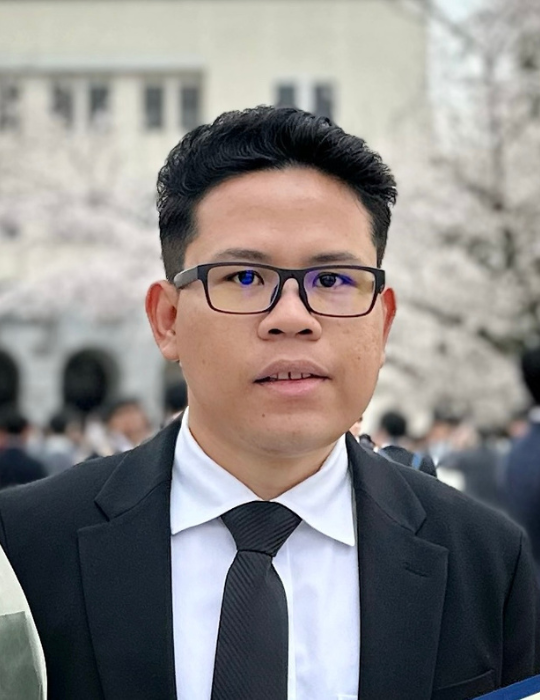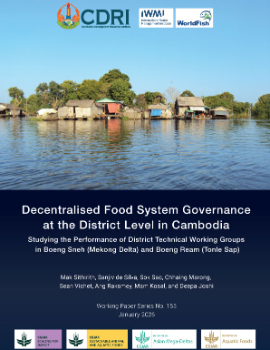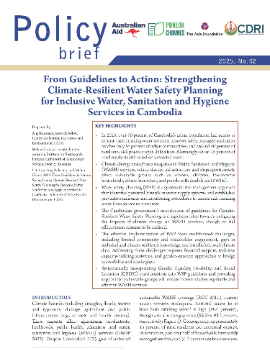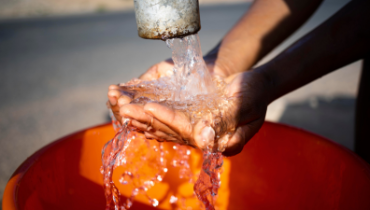ANG Raksmey
Research Fellow
Dr ANG Raksmey holds a Doctoral Degree in Engineering from the Tokyo Institute of Technology, Japan, where he majored in Global Engineering for Development, Environment, and Society. Additionally, He has a master’s degree in engineering from the Asian Institute of Technology, Thailand, specializing in Water Engineering and Management. His research focuses on climate change and environment-related issues, particularly assessing the potential impacts of climate and land-use changes on water resources, streamflow, sediment load, and water balance estimations, as well as drought assessment. Additionally, he has also worked on satellite-based meteorological datasets evaluation which would be useful alternative climate data for water resources management. From the outputs of his research works, several publications have been published and presented in leading international journals and conferences. He has extensive experience and skills in hydrological modeling and programming using various software such as ArcSWAT, SWAT-CUP, QGIS and ArcGIS, and can efficiently handle the processing, analysis, and scientific interpretation of big datasets. Before joining the CDRI, he worked as a consultant for a private engineering company on a project to develop a master plan for the urban drainage system.
Email : raksmey.ang@cdri.org.kh

This working paper examines decentralised food system governance at the district level in Cambodia through an assessment of District Technical Working Groups (DTWGs) established in Boeng Sneh (Mekong Delta) and Boeng Ream (Tonle Sap). These floodplain ecosystems are critical for rice production, fisheries, and rural livelihoods but face increas...

In 2023, over 90 percent of Cambodia’s urban population had access to at least basic drinking water services; however safely managed sanitation reaches only 56 percent of urban communities, and around 10 percent of rural ones still practice open defecation. Alarmingly, about 15 percent of rural residents still relied on untreated water.Climate...

Key MessagesMigrants were mainly young adults, with men doing high-risk jobs like construction and women doing less risky jobs such as factory work. Migrant households’ livelihoods are affected by unpredictable weather conditions, reduced water availability, and extreme events like heatwaves, droughts and floods, which lowered crop yields and fish...

This study investigates the barriers to nutritious food production and consumption in Cambodia’s Tonle Sap Lake floodplain and Mekong Delta, focusing on two case study sites: Boeung Ream Community Fish Refuge in Kampong Thom and Ta Soung Irrigation Scheme in Takeo. Using qualitative methods, including key informant interviews and focus group discus...

The ASEAN Climate Change Strategic Action Plan 2025-2030 (ACCSAP) is expected to serve as a roadmap to accelerate the transition of ASEAN countries towards achieving the goals of their NDCs and long-term strategies and visions, consisting of mitigation and adaptation. Cambodia Development Resource Institute (CDRI) will undertake a research study to...

The Ponlok Chomnes II program is a four-year program funded by the Australian Department of Foreign Affairs and Trade through The Asia Foundation's Ponlok Chomnes: Data and Dialogue for Development in Cambodia that aims to promote the normalisation of the use of evidence and inclusive dialogues to inform public policy decision-making. The Ponlok Ch...

Climate resilient water safety planning (WSP) has commenced in Cambodia, and new guidelines have been developed by government agencies to inform and guide climate-resilient water resources management and water security. These two new guidelines have been developed by the Ministry of Industry, Science, Technology & Innovation (MISTI) and the Ministr...
